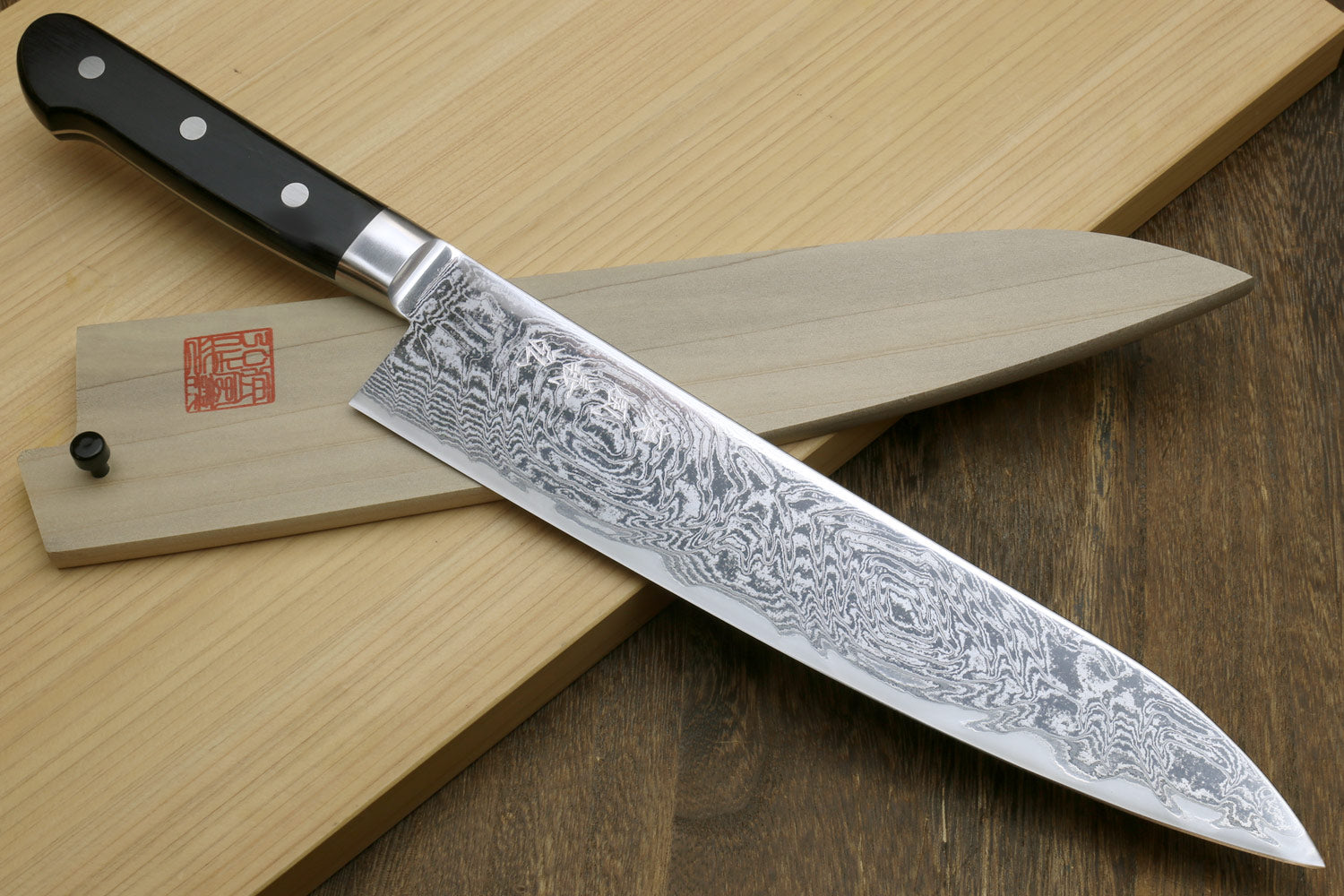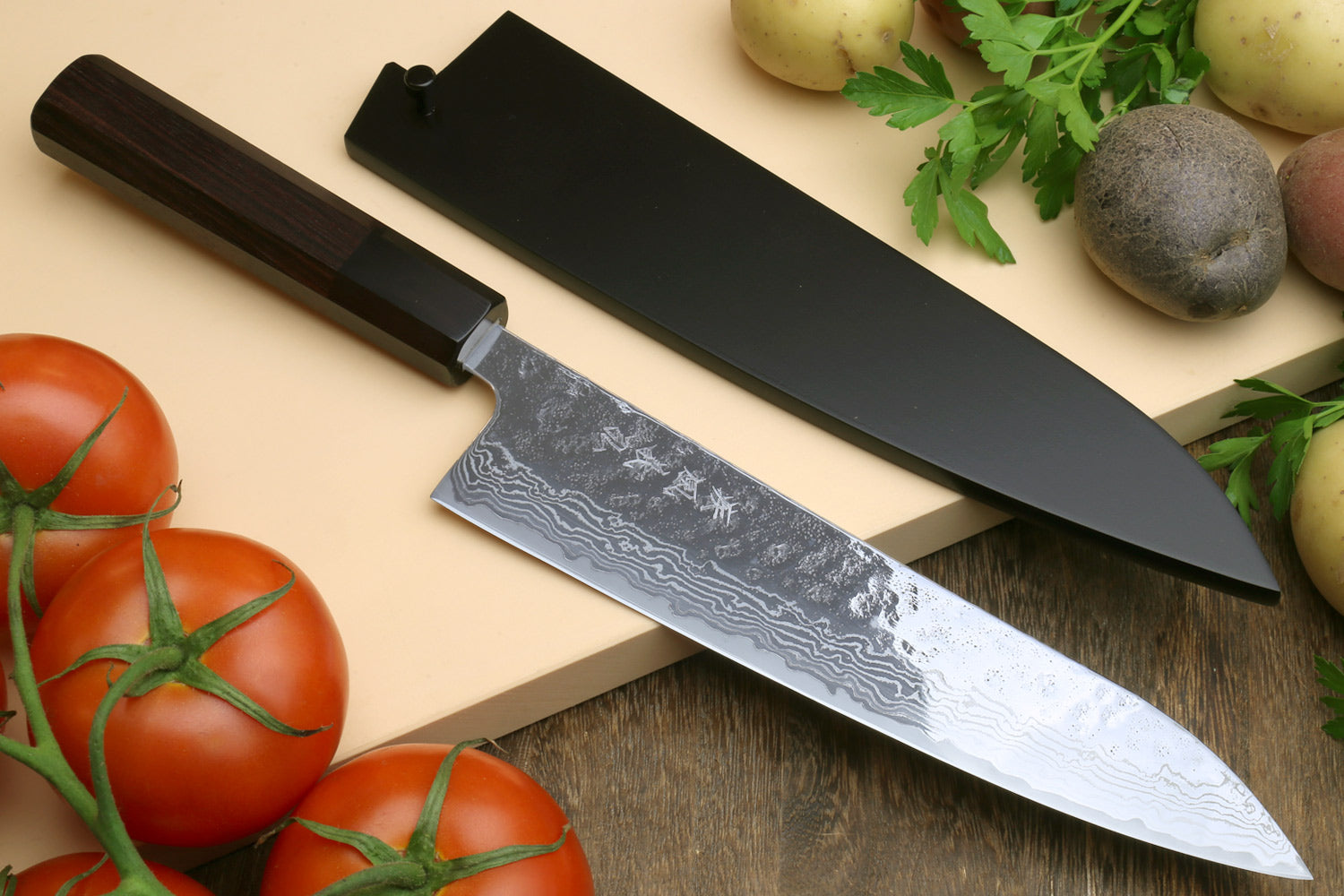For those working in the culinary world, choosing a knife is as critical as selecting fresh ingredients. A well-crafted knife not only makes food preparation easier, but it also enhances the overall cooking experience. In the bustling kitchens across the globe, the art of selecting the perfect knife often begins with understanding the nuances of different blades. This brings us to the exquisite world of Damascus knives. If you're on a quest to elevate your culinary toolkit, our damascus knife buying guide is your path to precision and quality.
Damascus knives are renowned for their strength, durability, and unique wavy patterns that are as captivating as they are practical. As a kitchen professional, knowing what to look for in a Damascus knife not only enhances your work in the kitchen but also ensures it becomes a lifelong companion. In this comprehensive guide, we'll delve into what makes these knives stand out and how to choose one that suits your professional needs.

Understanding Damascus Steel
The term “Damascus steel” typically refers to the patterns found on the blade. These patterns arise from the process used in creating the knife: multiple layers of steel are folded and welded together, then acid-etched to reveal the beautiful designs. Originally, these blades were crafted in the Near East around 500 AD and have since evolved into a symbol of masterful craftsmanship.
If you're curious about the fascinating history behind these blades, you can explore the long history of Damascus knives.
Why Damascus Knives?
The allure of Damascus knives lies in their superior sharpness and edge retention, making them a top choice for those who require precision and efficiency in their cutting tasks. Besides practical benefits, these knives also offer a distinct visual appeal due to their unique patterns, adding an element of style to any culinary setting. So, why not consider this fine blend of form and function?
However, there's more to making a decision than just appearance. Factors such as the core steel used, the number of layers, and the knife's balance are crucial elements to consider when buying a Damascus knife.
Key Features to Consider
Core Steel Type
The core steel of a Damascus knife is usually made of high-carbon steel or stainless steel. High-carbon steel is favored for its sharpness and easy re-sharpening, whereas stainless steel is known for its resistance to rust and corrosion. Your choice should depend on the type of cutting tasks you perform regularly and the level of maintenance you're comfortable with.
Learn more about the different attributes of Damascus vs stainless steel knives.
Layer Count
While the aesthetics of a Damascus blade are driven by its layers, more layers generally mean a tougher blade. The typical range is between 67 and 300 layers. For most culinary applications, a knife with around 67 layers should suffice, offering enough strength while keeping the blade from becoming overly brittle.
Making the Right Choice
When choosing a Damascus knife, it's imperative to handle the knife before making a purchase whenever possible. This allows you to assess its weight, balance, and grip, ensuring it feels right in hand for your specific needs. Weight is a personal preference; some chefs prefer lighter knives for their speed while others prefer a heavier blade for its chopping power. The balance is crucial for control, so make sure it matches your cooking style and provides comfort during long prep sessions.
You can further explore what makes a good steak knife to draw parallels with Damascus knives.
Maintaining Your Damascus Knife
Caring for your knife is just as important as choosing it. Proper maintenance involves using a honing steel regularly, hand washing the knife, and storing it properly. Never place a Damascus knife in a dishwasher, as the harsh conditions can damage the blade's edge and its artistic patterns.
For detailed care instructions, refer to Damascus knife maintenance.
Conclusion
Choosing the right Damascus knife can elevate your culinary craft to new heights. By considering the various factors such as core steel type, layer count, balance, and maintenance, you'll be equipped to choose a knife that not only complements your professional skills but also stands the test of time. Whether slicing, chopping, or dicing, your Damascus knife will serve as an elegant, efficient extension of your culinary expertise.
If you're interested in more insights and expert tips on knives, don't hesitate to explore other comprehensive guides available.

FAQs
What makes Damascus knives unique?
Damascus knives are distinguished by their intricate patterns, derived from the forging of multiple steel layers. They offer exceptional sharpness and edge retention, ideal for precision tasks in professional kitchens.
How do I maintain a Damascus knife?
Regular honing, hand washing, and appropriate storage are key to maintaining the edge and aesthetic of a Damascus knife. Avoid dishwashers to prevent damage.
Are Damascus knives worth the investment?
For professionals seeking longevity, sharpness, and style, investing in a Damascus knife is a wise decision due to its superior craftsmanship and durability.
This article contains affiliate links. We may earn a commission at no extra cost to you.


























